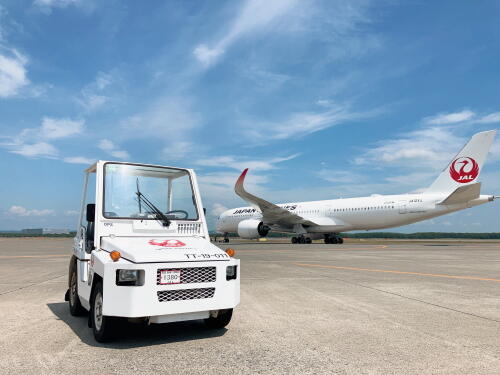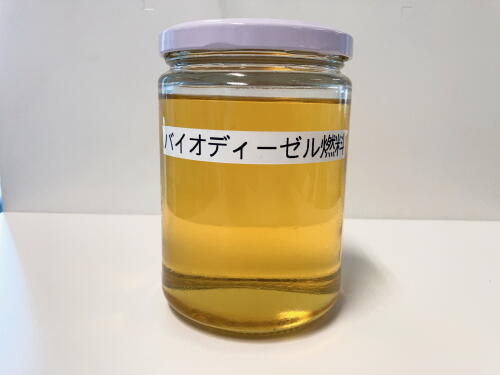Toyota Tsusho Starts Supply of Biodiesel Fuel for the First Time at an Airport in Hokkaido for Ground Support Equipment in New Chitose Airport
- (former)Machinery, Energy & Project
2023-08-01
Toyota Tsusho Corporation ("Toyota Tsusho") announced today that it has started supplying 100% concentration biodiesel fuel ("biofuel") for a trial on the use of biofuel for ground support equipment within the New Chitose Airport, operated by Japan Airlines Co., Ltd. ("JAL").
The purpose of the trial is to verify the effects of using 100% concentration biofuel on the engines of three units of ground support equipment (towing tractors*1 and forklifts) deployed in the New Chitose Airport during a period of approximately three and a half months from August 1, 2023 to November 14, 2023, and to obtain knowledge for stable operation. Use of 100% concentration biofuel is expected to reduce CO2 emissions by 2.62 kg per liter*2 compared to the current level.
In collaboration between Toyota Tsusho and Shiraoi Yushi Company Limited, a group company of Secoma Company Limited, the biofuel that Toyota Tsusho has started supplying for the trial uses as the raw materials waste cooking oil generated by the Seicomart in-store cooking system "HOT CHEF" operated by the Secoma Group in Hokkaido and at Secoma Group food plants. In this way, the initiative also contributes to the circular economy through the production and supply of alternative fuels for local consumption by local production.
Through the trial, Toyota Tsusho will work in collaboration and cooperation with the local community to reduce CO2 emissions through use of sustainable energy to achieve Hokkaido's aim of "Zero Carbon Hokkaido"*3. In addition, Toyota Tsusho will contribute to the transition to a decarbonized society by promoting carbon neutral initiatives throughout the industrial life cycle.
 |
 |
 |
|
Towing tractor used in the trial
|
Biodiesel fuel
|
*1 Towing tractors are vehicles that tow containers for transporting air cargo and passengers' baggage within the restricted area of an airport.
*2 The reduction in CO2 emissions is based on the idea that vegetable oil, which is part of the raw materials for the biofuel, absorbs CO2 through photosynthesis during the plant growth process, thus offsetting the equivalent amount of CO2 emissions when the fuel is combusted under the carbon neutral concept.
*3 The aim of "Zero Carbon Hokkaido" is to solve climate issues and create a world-class Hokkaido by simultaneously promoting decarbonization, economic revitalization, and sustainable regional development through maximizing the use of the renewable energy and vast forests and other carbon sinks that utilize Hokkaido's abundant natural and local resources.
The information in this release is current as of the date of announcement.
Please note that information may change after the date of announcement. Thank you in advance for your understanding.



